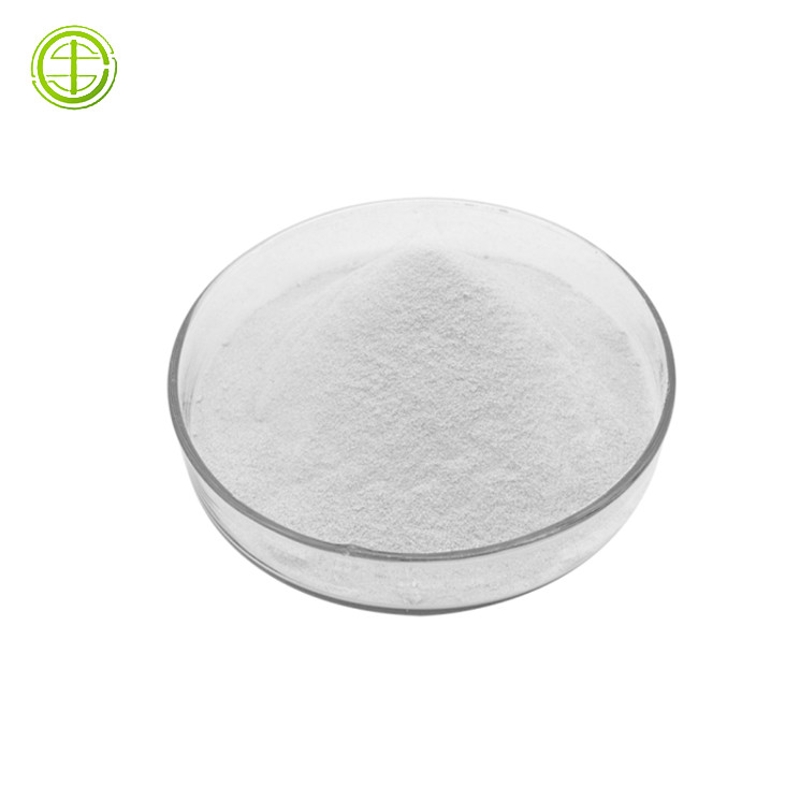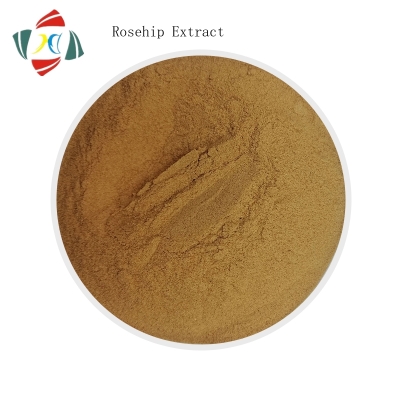-
Categories
-
Pharmaceutical Intermediates
-
Active Pharmaceutical Ingredients
-
Food Additives
- Industrial Coatings
- Agrochemicals
- Dyes and Pigments
- Surfactant
- Flavors and Fragrances
- Chemical Reagents
- Catalyst and Auxiliary
- Natural Products
- Inorganic Chemistry
-
Organic Chemistry
-
Biochemical Engineering
- Analytical Chemistry
- Cosmetic Ingredient
-
Pharmaceutical Intermediates
Promotion
ECHEMI Mall
Wholesale
Weekly Price
Exhibition
News
-
Trade Service
April 25, 2021 //---The formation of long-term immune memory against SARS-CoV-2 is essential for herd immunity, which is also the goal of vaccination
.
However, the current understanding of the long-term memory of T cells in COVID-19 patients is still not very clear
.
In a recent study, Juliane S.
Walz's team from the University of Tubingen in Germany investigated the SARS-CoV-2 antibody and T cell responses in samples from patients who had recovered from COVID-19 for up to 6 months after infection.
Related results were published in the recent "Science Translational Medicine" magazine
.
.
However, the current understanding of the long-term memory of T cells in COVID-19 patients is still not very clear
.
In a recent study, Juliane S.
Walz's team from the University of Tubingen in Germany investigated the SARS-CoV-2 antibody and T cell responses in samples from patients who had recovered from COVID-19 for up to 6 months after infection.
Related results were published in the recent "Science Translational Medicine" magazine
.
(Image source:this study, the authors first conducted longitudinal follow-up of patients in the recovery period of COVID-19 to characterize symptoms after infection and determine whether they have a persistent SARS-CoV-2 specific T cell response
.
The follow-up date and time point included two times, the first time was 35-56 days (T1), and the second time was 141-183 days (T2)
.
The test results showed that the proportion of SARS-CoV-2 specific T cell responses in convalescent patients increased over time, from 93% of T1 to 100% of T2
.
Among them, the proportion of T cells against HLA-I increased from 45% to 69%, and the percentage of T cell responses against HLA-DR increased from 90% to 100%
.
Furthermore, the author separately analyzed the maintenance of CD4 and CD8 T cell responses
.
The results showed that the response of CD8 T cells remained stable over time, while the response of CD4 T cells increased over time
.
.
The follow-up date and time point included two times, the first time was 35-56 days (T1), and the second time was 141-183 days (T2)
.
The test results showed that the proportion of SARS-CoV-2 specific T cell responses in convalescent patients increased over time, from 93% of T1 to 100% of T2
.
Among them, the proportion of T cells against HLA-I increased from 45% to 69%, and the percentage of T cell responses against HLA-DR increased from 90% to 100%
.
Furthermore, the author separately analyzed the maintenance of CD4 and CD8 T cell responses
.
The results showed that the response of CD8 T cells remained stable over time, while the response of CD4 T cells increased over time
.
(Figure 1, SARS-CoV-2 specific T cell response changes with the recovery period)
In terms of humoral immunity, the author compared the characteristics of changes in neutralizing antibodies in patients at different periods
.
The results show that there are large differences in the levels of neutralizing antibodies between different patients, and these differences are closely related to the severity of the patients' own clinical symptoms
.
.
The results show that there are large differences in the levels of neutralizing antibodies between different patients, and these differences are closely related to the severity of the patients' own clinical symptoms
.
(Figure 2, Analysis of the correlation between SARS-CoV-2 neutralizing antibody levels and patients' clinical symptoms)
In the end, the authors screened and obtained polypeptide sequences derived from ORFs of different viruses, and T cells that recognize the above sequences can maintain long-term immune memory
.
This finding may have positive implications for the design of effective vaccination strategies
.
.
This finding may have positive implications for the design of effective vaccination strategies
.
In summary, the author showed through longitudinal analysis of patient samples that although specific antibody responses to viral spikes and nucleocapsid decreased with the prolonged recovery period, in contrast, the frequency and intensity of functional T cell responses The above all remained stable and even strengthened
.
The time-varying T cell diversity peptide map identified the T cell epitopes that mediate the long-term SARS-CoV-2 T cell response, and these epitopes may be the basis for the COVID-19 vaccine design
.
(Bioon.
com)
.
The time-varying T cell diversity peptide map identified the T cell epitopes that mediate the long-term SARS-CoV-2 T cell response, and these epitopes may be the basis for the COVID-19 vaccine design
.
(Bioon.
com)
Original source: Tatjana Bilich, Annika Nelde, Jonas S.
Heitmann et al.
, T cell and antibody kinetics delineate SARS-CoV-2 peptides mediating long-term immune responses in COVID-19 convalescent individuals.
Science Translational Medicine 21 Apr 2021: Vol .
13, Issue 590, eabf7517 DOI: 10.
1126/scitranslmed.
abf7517
Heitmann et al.
, T cell and antibody kinetics delineate SARS-CoV-2 peptides mediating long-term immune responses in COVID-19 convalescent individuals.
Science Translational Medicine 21 Apr 2021: Vol .
13, Issue 590, eabf7517 DOI: 10.
1126/scitranslmed.
abf7517
(Figure 1, SARS-CoV-2 specific T cell response changes with the recovery period)
In terms of humoral immunity, the author compared the characteristics of changes in neutralizing antibodies in patients at different periods
.
The results show that there are large differences in the levels of neutralizing antibodies between different patients, and these differences are closely related to the severity of the patients' own clinical symptoms
.
.
The results show that there are large differences in the levels of neutralizing antibodies between different patients, and these differences are closely related to the severity of the patients' own clinical symptoms
.
(Figure 2, Analysis of the correlation between SARS-CoV-2 neutralizing antibody levels and patients' clinical symptoms)
In the end, the authors screened and obtained polypeptide sequences derived from ORFs of different viruses, and T cells that recognize the above sequences can maintain long-term immune memory
.
This finding may have positive implications for the design of effective vaccination strategies
.
.
This finding may have positive implications for the design of effective vaccination strategies
.
In summary, the author showed through longitudinal analysis of patient samples that although specific antibody responses to viral spikes and nucleocapsid decreased with the prolonged recovery period, in contrast, the frequency and intensity of functional T cell responses The above all remained stable and even strengthened
.
The time-varying T cell diversity peptide map identified the T cell epitopes that mediate the long-term SARS-CoV-2 T cell response, and these epitopes may be the basis for the COVID-19 vaccine design
.
(Bioon.
com)
.
The time-varying T cell diversity peptide map identified the T cell epitopes that mediate the long-term SARS-CoV-2 T cell response, and these epitopes may be the basis for the COVID-19 vaccine design
.
(Bioon.
com)
Original source: Tatjana Bilich, Annika Nelde, Jonas S.
Heitmann et al.
, T cell and antibody kinetics delineate SARS-CoV-2 peptides mediating long-term immune responses in COVID-19 convalescent individuals.
Science Translational Medicine 21 Apr 2021: Vol .
13, Issue 590, eabf7517 DOI: 10.
1126/scitranslmed.
abf7517
Heitmann et al.
, T cell and antibody kinetics delineate SARS-CoV-2 peptides mediating long-term immune responses in COVID-19 convalescent individuals.
Science Translational Medicine 21 Apr 2021: Vol .
13, Issue 590, eabf7517 DOI: 10.
1126/scitranslmed.
abf7517
(Figure 2, Analysis of the correlation between SARS-CoV-2 neutralizing antibody levels and patients' clinical symptoms)
In the end, the authors screened and obtained polypeptide sequences derived from ORFs of different viruses, and T cells that recognize the above sequences can maintain long-term immune memory
.
This finding may have positive implications for the design of effective vaccination strategies
.
.
This finding may have positive implications for the design of effective vaccination strategies
.
In summary, the author showed through longitudinal analysis of patient samples that although specific antibody responses to viral spikes and nucleocapsid decreased with the prolonged recovery period, in contrast, the frequency and intensity of functional T cell responses The above all remained stable and even strengthened
.
The time-varying T cell diversity peptide map identified the T cell epitopes that mediate the long-term SARS-CoV-2 T cell response, and these epitopes may be the basis for the COVID-19 vaccine design
.
(Bioon.
com)
.
The time-varying T cell diversity peptide map identified the T cell epitopes that mediate the long-term SARS-CoV-2 T cell response, and these epitopes may be the basis for the COVID-19 vaccine design
.
(Bioon.
com)
Original source: Tatjana Bilich, Annika Nelde, Jonas S.
Heitmann et al.
, T cell and antibody kinetics delineate SARS-CoV-2 peptides mediating long-term immune responses in COVID-19 convalescent individuals.
Science Translational Medicine 21 Apr 2021: Vol .
13, Issue 590, eabf7517 DOI: 10.
1126/scitranslmed.
abf7517
Heitmann et al.
, T cell and antibody kinetics delineate SARS-CoV-2 peptides mediating long-term immune responses in COVID-19 convalescent individuals.
Science Translational Medicine 21 Apr 2021: Vol .
13, Issue 590, eabf7517 DOI: 10.
1126/scitranslmed.
abf7517
In summary, the author showed through longitudinal analysis of patient samples that although specific antibody responses to viral spikes and nucleocapsid decreased with the prolonged recovery period, in contrast, the frequency and intensity of functional T cell responses The above all remained stable and even strengthened
.
The time-varying T cell diversity peptide map identified the T cell epitopes that mediate the long-term SARS-CoV-2 T cell response, and these epitopes may be the basis for the COVID-19 vaccine design
.
(Bioon.
com)
.
The time-varying T cell diversity peptide map identified the T cell epitopes that mediate the long-term SARS-CoV-2 T cell response, and these epitopes may be the basis for the COVID-19 vaccine design
.
(Bioon.
com)
Original source: Tatjana Bilich, Annika Nelde, Jonas S.
Heitmann et al.
, T cell and antibody kinetics delineate SARS-CoV-2 peptides mediating long-term immune responses in COVID-19 convalescent individuals.
Science Translational Medicine 21 Apr 2021: Vol .
13, Issue 590, eabf7517 DOI: 10.
1126/scitranslmed.
abf7517
Heitmann et al.
, T cell and antibody kinetics delineate SARS-CoV-2 peptides mediating long-term immune responses in COVID-19 convalescent individuals.
Science Translational Medicine 21 Apr 2021: Vol .
13, Issue 590, eabf7517 DOI: 10.
1126/scitranslmed.
abf7517
Original source: Tatjana Bilich, Annika Nelde, Jonas S.
Heitmann et al.
, T cell and antibody kinetics delineate SARS-CoV-2 peptides mediating long-term immune responses in COVID-19 convalescent individuals.
Science Translational Medicine 21 Apr 2021: Vol .
13, Issue 590, eabf7517 DOI: 10.
1126/scitranslmed.
abf7517
Original source: T cell and antibody kinetics delineate SARS-CoV-2 peptides mediating long-term immune responses in COVID-19 convalescent individuals. Heitmann et al.
, T cell and antibody kinetics delineate SARS-CoV-2 peptides mediating long-term immune responses in COVID-19 convalescent individuals.
Science Translational Medicine 21 Apr 2021: Vol .
13, Issue 590, eabf7517 DOI: 10.
1126/scitranslmed.
abf7517







